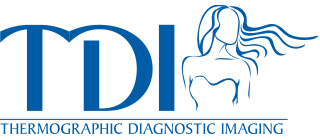Thyroid disease of one kind or another affects and estimated 20 million Americans. Health issues like chronic fatigue, weight loss, weight gain, and extreme sensitivity to cold and heat can be linked back to problems within the thyroid gland. Thyroid dysfunction causes a hormonal imbalance within the body that leads to these common health complications. More serious still, thyroid cancer, affects more than 60,000 so far in 2015 alone.

Thyroid dysfunction or thyroid disease occurs when the hormones produced by the thyroid glands become imbalanced causing a domino effect throughout the rest of the body’s intricately interwoven system. For instance, when the hormones that help to maintain the body’s metabolism become imbalanced a person can experience extreme weight gain or weight loss. The good news is that many thyroid issues are highly preventable with the right balance of physical activity and a healthy diet.
One of the most common factors that puts a person at risk for thyroid disease or dysfunction is lack of iodine. Because the hormones provided by the thyroid are primarily comprised of iodine, without a healthy level they can become imbalanced very quickly. Foods like milk, cod, shrimp, baked potatoes, and navy beans are all high in iodine. While most Americans are not at risk for iodine deficiency, it is still important to check with your doctor that you are getting enough.
There are many methods of testing for thyroid dysfunction that have shown to be inaccurate as they alter thyroid function in the process of testing. In some cases this can produce false results. In addition, methods such as nuclear scans and x-rays are not only invasive, but also require that the subject be injected with radioactive dye. It’s for these reasons that certain health care practitioners, like Dr. Philip Getson of Thermographic Diagnostic Imaging, are offering a non-invasive and non-radioactive method for dental and thyroid screening called Thermography. This pain free screening method uses infrared imaging to look at signature patterns under the skin. These scans are then studied for any significant temperature variations between the thyroid gland and its surrounding structures. Thermography does not require the use of injection of radioactive dye and is performed without even touching the body leading to more accurate and natural results.
For more information on the applications of Thermography please visit our website here.

